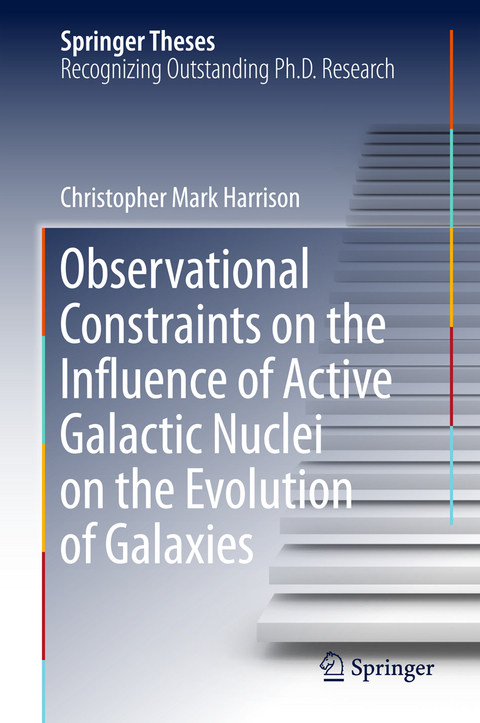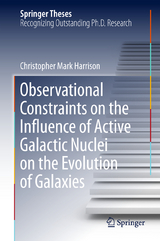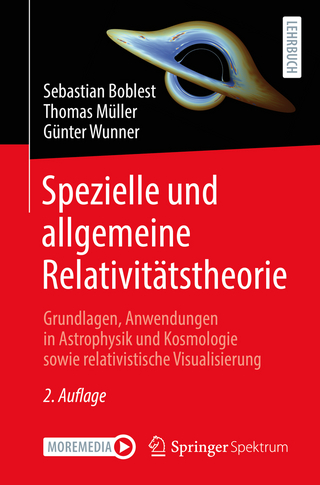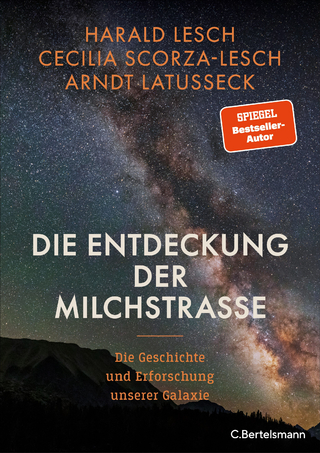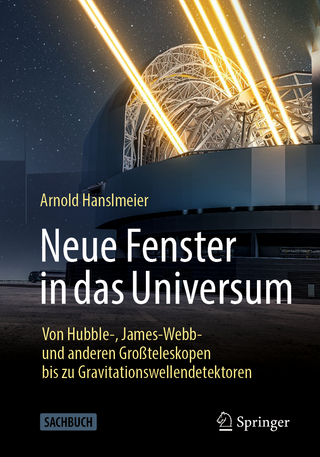Observational Constraints on the Influence of Active Galactic Nuclei on the Evolution of Galaxies
Springer International Publishing (Verlag)
978-3-319-28453-8 (ISBN)
Chris Harrison completed an undergraduate degree in Astrophysics at Edinburgh University before moving to Durham University for his PhD in 2010. During his PhD he published a number of academic papers, was invited to a speak at international conferences and was awarded telescope time on a variety of facilities as lead investigator. Chris was awarded the Keith Nicolas Prize in 2013 and the Physics Thesis Prize by Durham University in 2014. He now continues to develop the research presented in his thesis at Durham University as a Postdoctoral Research Fellow.
Introduction.- Integral field spectroscopy and spectral energy distributions.- Energetic galaxy-wide outflows in high-z ULIRGs hosting AGN activity.- Kiloparsec scale outflows are prevalent in luminous AGN: outflows and feedback in the context of the overall AGN population.- Storm in a "Teacup": a radio-quiet quasar with =10 kpc radio-emitting bubbles and extreme gas kinematics.- No submillimetre signature of star formation suppression among X-ray luminous AGN.- Conclusions.- Ongoing and future work.
"Harrison's research aims to increase our understanding of the ways in which accreting black holes can affect their host galaxies, and thus impact galaxy evolution. ... To an interested party starting studies in this field, the book provides a good introduction to one approach that can shed light on this interesting topic." (Tim Davis, The Observatory, Vol. 137 (1258), June, 2017)
| Erscheinungsdatum | 08.10.2016 |
|---|---|
| Reihe/Serie | Springer Theses |
| Zusatzinfo | XXIII, 193 p. 57 illus., 17 illus. in color. |
| Verlagsort | Cham |
| Sprache | englisch |
| Maße | 155 x 235 mm |
| Gewicht | 483 g |
| Themenwelt | Naturwissenschaften ► Physik / Astronomie ► Astronomie / Astrophysik |
| Naturwissenschaften ► Physik / Astronomie ► Relativitätstheorie | |
| Schlagworte | active galactic nuclei • AGN Feedback Observations • Astronomy, Observations and Techniques • Astrophysics and Astroparticles • Cosmology • Galaxy Evolution • Herschel Observations of AGN • IFU Observations of AGN • IFU Observations of High-redshift Galaxies • Physics and Astronomy • Super Massive Black Hole Observations • Suppression of Star Formation |
| ISBN-10 | 3-319-28453-3 / 3319284533 |
| ISBN-13 | 978-3-319-28453-8 / 9783319284538 |
| Zustand | Neuware |
| Haben Sie eine Frage zum Produkt? |
aus dem Bereich
